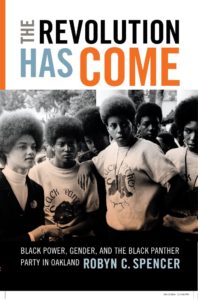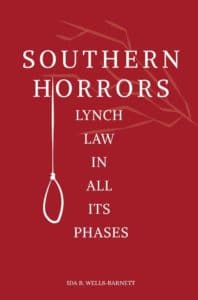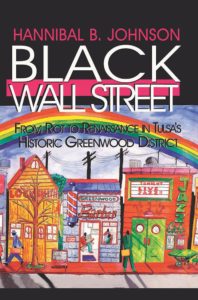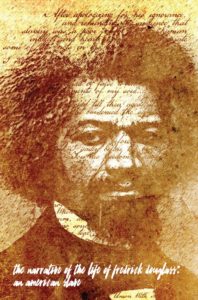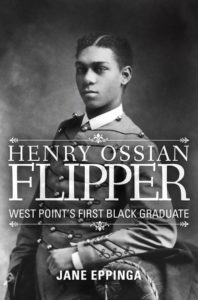In The Revolution Has Come Robyn C. Spencer traces the Black Panther Party’s organizational evolution in Oakland, California, where hundreds of young people came to political awareness and journeyed to adulthood as members. Challenging the belief that the Panthers were a projection of the leadership, Spencer draws on interviews with rank-and-file members, FBI files, and archival materials to examine the impact the organization’s internal politics and COINTELPRO’s political repression had on its evolution and dissolution. She shows how the Panthers’ members interpreted, implemented, and influenced party ideology and programs…
Wells provided her audience with extensive and carefully-documented facts, reciting damning statistics about the utter lack of any evidence that lynched men and women had committed, or even been accused of, any crime prior to their murders. Like abolitionists, Wells described the full horror of the violence perpetrated against African-Americans within American society in excruciating detail, refusing to spare her audience the horrible details…
Early in the twentieth century, the black community in Tulsa- the ”Greenwood District”- became a nationally renowned entrepreneurial center. Frequently referred to as ”The Black Wall Street of America,” the Greenwood District attracted pioneers from all over America who sought new opportunities and fresh challenges. Legal segregation forced blacks to do business among themselves. The Greenwood district prospered as dollars circulated within the black community. But fear and jealousy swelled in the greater Tulsa community….
Former slave, impassioned abolitionist, brilliant writer, newspaper editor and eloquent orator whose speeches fired the abolitionist cause, Frederick Douglass (1818–1895) led an astounding life. Physical abuse, deprivation and tragedy plagued his early years, yet through sheer force of character he was able to overcome these obstacles to become a leading spokesman for his people. In this, the first and most frequently read of his three autobiographies, Douglass provides graphic descriptions of his childhood and horrifying experiences as a slave as well as a harrowing record of his dramatic escape to the North and eventual freedom…
In 1878 Henry Ossian Flipper seemed destined for a long military career. Four years later, he was on trial at Fort Davis, Texas, for embezzlement of government funds and conduct unbecoming an officer and a gentleman. Found “not guilty” of the more serious charges of embezzlement, the nation’s first black officer was court-martialed on the specious conduct charges. Thoroughly “humiliated, discouraged, and heartbroken,” Flipper would soon embark upon a career which in time would bring him more honor and fame than if he had remained in the military. One hundred years later, his name was cleared and the 1882 records of the black soldier were changed to reflect an honorable discharge. The remarkable story of Henry Ossian Flipper, a young man born to slavery on the eve of the Civil War, and his struggle for recognition has left its mark on our nation’s history…


